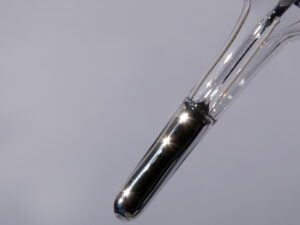 I didn’t know this term’s origins, though I’ve long used it to mean someone large, clumsy, and unskilled. I suspect that students will encounter it in literature from the 19th Century, as well as Southern and Cowboy fiction. I’m fond of this week’s word, personally.
I didn’t know this term’s origins, though I’ve long used it to mean someone large, clumsy, and unskilled. I suspect that students will encounter it in literature from the 19th Century, as well as Southern and Cowboy fiction. I’m fond of this week’s word, personally.
When we adopted a truly giant Anatolian Mountain Dog, Swede, he was never clumsy but got called a “big galoot” when he began working on our farm. An experienced livestock guardian dog, Vela, taught him the ropes. There I go with the nautical metaphors again, as noted in a recent post. In fact, a “galoot” can mean an inexperienced sailor, as the OED entry on our word notes. They cite a first recorded use from 1808.
Back to dog-as-galoot. With Vela’s passing Swede became boss-dog now on the farm, teaching a new dog how to protect livestock as these breeds do. So my galoot is no longer inexperienced. At over 150 pounds, and standing on all four feet taller than my hip, he remains large. And I still lovingly call him “the Big Galoot,” which got howls of laughter from a Scottish friend. Thus I assumed that the term might be from Scots Gaelic.
The OED lists the word’s etymology and origin as “uncertain” but corroborates my sense that one may find it in Southern US vernacular. I was surprised to see that the noun can refer to folks of any gender, as in this 1866 example: “Wake, Bessy, wake, My sweet galoot!” And thus this blog post dived down a digital and print rabbit-hole.
Perhaps Bessy in “Artemus Ward among Fenians” is a farm animal? Not so. She’s the wife of a character visited by the narrator Artemus Ward, the nom de plume for humorist Charles F. Browne. I own a disintegrating copy of the 1887 edition The Complete Works of Artemus Ward; Browne’s sketches, like so many pieces of what has come to be known as “The Humor of the Old Southwest,” skewered everyone, including Browne’s friend Abraham Lincoln. The Wikipedia entry notes that Lincoln read one of Ward’s sketches to his Cabinet before sharing The Emancipation Proclamation, perhaps to lighten the mood for an earth-shattering event. Lincoln was no galoot; he knew how to sway an audience.
Browne, a Maine native, traveled the Antebellum South, thus making him a Southern humorist, then England and Ireland. His work proved wildly popular; he even took the stage to portray Ward, Wikipedia puts it, as a Yankee rube gifted with common sense. He died young, while traveling abroad, in his 30s. One wonders if his reputation and literary work might have equaled those of his friend Sam Clemens (Mark Twain) had Browne lived longer.
Those with an interest in the humor that influenced Mark Twain need to study some of the work of Browne and his contemporaries in Humor of the Old Southwest, an anthology edited by Hennig Cohen and William B. Dillingham. Though out of print, cheap copies of a first and second edition abound. For a digital collection of Browne’s humor, you can find “Fenians” and other sketches at Project Gutenberg. Now back to this week’s word!
Frequency of our word rose rapidly until 1920, when a slow decline in usage, if not galoots, occurred. Things hit bottom in 1990. I’m heartened by a rebound since, with a noticeable uptake in usage this century. We clearly have no shortage of galoots about, some quite famous; it’s a gently non-sectarian, bipartisan, international jibe on anyone new, unskilled, perhaps clumsy. I enjoy how the term lacks malice, if not exasperation. We all are galoots, as some point. “Greenhorn” in Wild-West slang or “still wet behind the ears” captures some aspects of being a galoot.
I’ve wandered, like Browne’s alter-ego, all over Ireland and Scotland without finding the origin of “galoot.” Got any ideas? Please share!
Send in useful words or metaphors, by e-mailing me (jessid -at- richmond -dot- edu) or leaving a comment below. You are invited to write a guest post as well.
See all of our Metaphors of the Month here and Words of the Week here.
Image of galoot and best friend, by me. you decide which is the galoot.
 Thanks to Josh Wroniewicz, Director, Business Office at our Campus Business Services, for this nomination. In election season, we usually have major candidates calling each other names. “Dastardly” would be a fine, if rather quaint, bit of mud to sling at one’s opponent.
Thanks to Josh Wroniewicz, Director, Business Office at our Campus Business Services, for this nomination. In election season, we usually have major candidates calling each other names. “Dastardly” would be a fine, if rather quaint, bit of mud to sling at one’s opponent.









